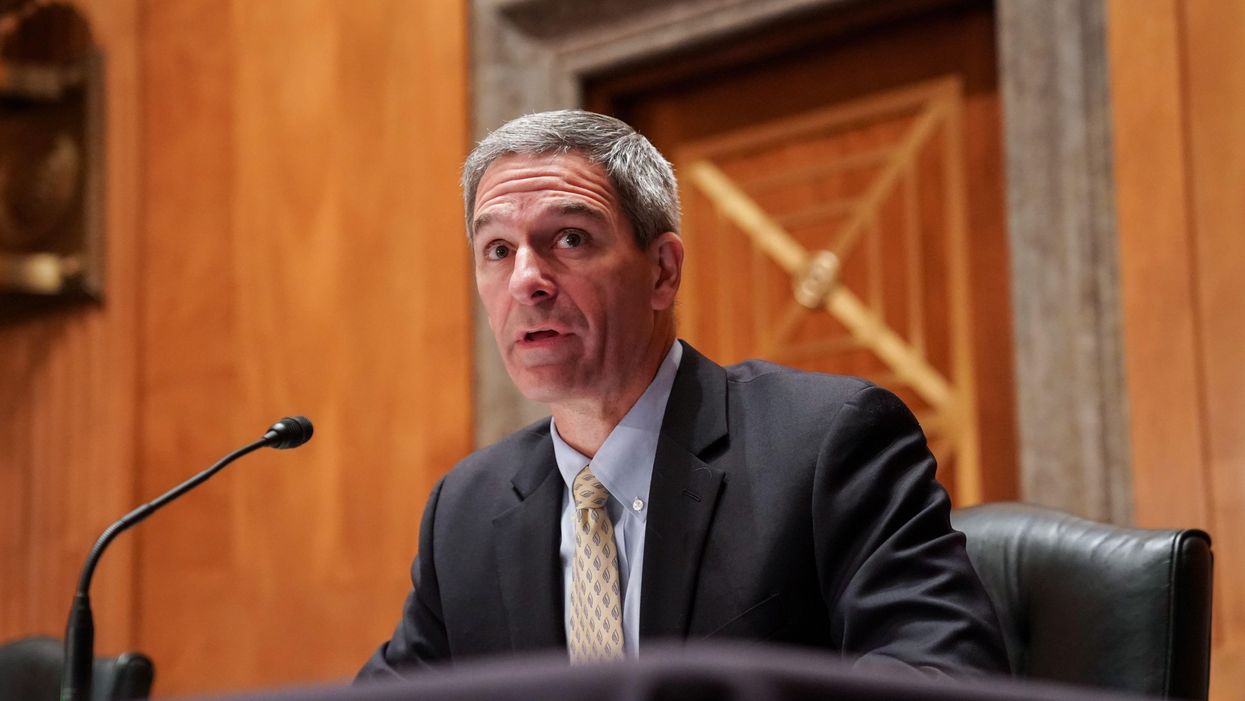Two anti-abortion groups have launched a $5 million campaign to block the passage of the sweeping democracy reform bill known as HR 1, which will be brought to the House floor next week.
Former Trump administration official Ken Cuccinelli is at the helm of the Election Transparency Initiative, a program announced Tuesday by the Susan B. Anthony List and American Principles Project.
With every House Democrat already signed onto the legislation, HR 1 will likely pass through the House in early March. But getting enough "yes" votes in the 50-50 Senate will be much more challenging, if not impossible, especially with the filibuster still intact.
The wide-ranging reform package would ease access to the ballot box, curb the influence of money in politics, end partisan gerrymandering and strengthen government ethics. Democrats first introduced the legislation in 2019, but were stymied by GOP opposition. In this Congress, HR 1 looks doomed to a similar fate.
The conservative groups, led by Cuccinelli, will seek to capitalize on the evenly split Senate by rallying opposition to HR 1, particularly in three states — Arizona, Montana and West Virginia — where moderate senators are most likely to break from the Democratic majority on big issues. Kyrsten Sinema, Joe Manchin and Jon Tester have all vocally opposed nixing the filibuster, making their support all the more crucial in achieving the 60 votes needed to pass legislation.
While managing the defense in Washington, Susan B. Anthony List and American Principles Project will simultaneously go on offense at the state level to bolster grassroots support for "meaningful reforms," said Cuccinelli, who served as deputy secretary of Homeland Security in the Trump administration.
"The pro-life movement must engage in election transparency and integrity reform or their ability to elect pro-life, pro-family lawmakers — and pass laws that save lives — will be greatly diminished, if not extinguished," he said.
In the campaign announcement, Cuccinelli and the two organizations did not outline what election reforms they do support, but they strongly oppose the federalization of election laws through HR 1 and claimed that legislation would ensure "pro-abortion Democrats" had permanent control over the federal government.
"The integrity of our electoral system was severely compromised in 2020 when pro-abortion Democrats — utilizing the Covid-19 pandemic as an excuse — weakened state laws that ensure free and fair elections," said Marjorie Dannenfelser, president of Susan B. Anthony List.
Nearly every state offered no-excuse absentee voting in the 2020 election due to the coronavirus pandemic, leading to historically high voter turnout. But now, GOP lawmakers across the country are looking to roll back mail voting access, falsely claiming such moves are necessary to combat fraud. Experts have repeatedly found no evidence of such fraud or misconduct with any method of voting in last year's election.




















Trump & Hegseth gave Mark Kelly a huge 2028 gift